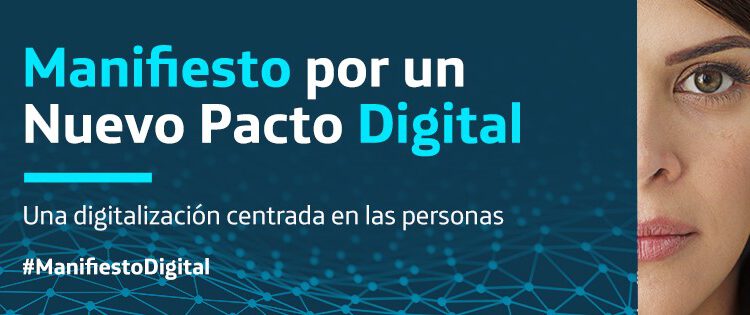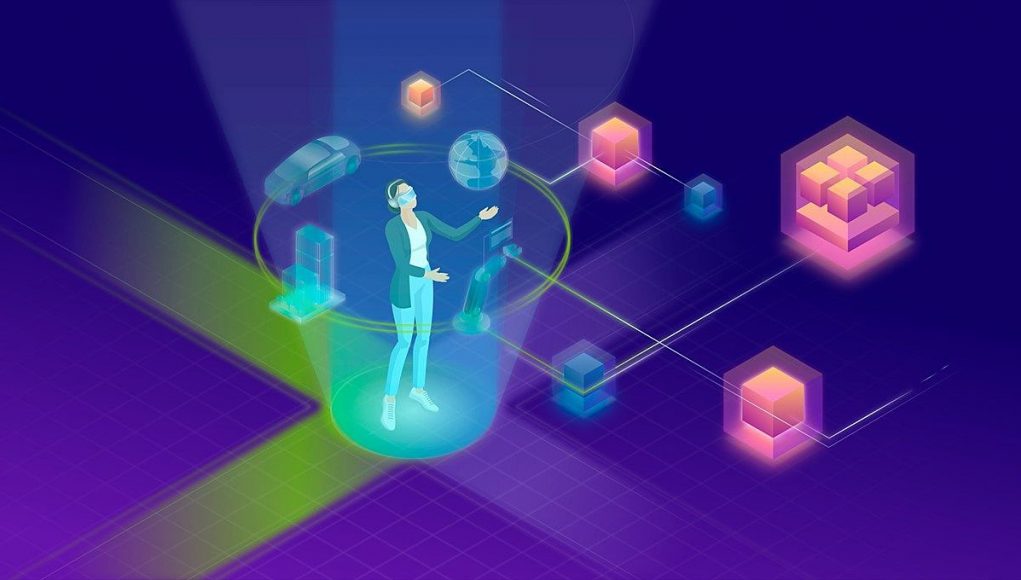From Telefónica, a new Digital Pact is opening the way to guarantee the values and ensure the benefits of digitalization for people through five key points. The objective is to promote this change from a public-private collaboration, and in an era of fiber networks, 5G, and the generation of huge volumes of data only manageable through algorithms and artificial intelligence.
A New Digital Pact it was necessary and Telefónica was the first to respond to this demand. Putting people at the centre of a interoperable and open digitalization, the company has responded to the need to go one step further.
A shift from era to digitalization
The First Digital Manifesto that Telefónica presented in the year 2014 it no longer met the needs of an increasingly fast-paced world where technological, political and social changes they follow each other at great speed.
We live in the era of the fiber network, 5G, the domain of huge volumes of data, artificial intelligence and its algorithms … it is a change of era towards the digital age.
A new time where the benefits of technology to improving people’s lives they are incredible, but where you also have to be cautious. The risks of digital disruption they are a reality to be prepared for.
Collaboration: a proposal for the future
In order to know how to face these challenges, Telefónica has presented the second edition of its Digital Manifesto, where it places both governments and companies on the scene and gives them a leading role in the fight to mitigate the possible adverse effects that the digital age may bring with it.
To do this, it relies on collaboration as the main proposal for the future that favors and ensures digitalization people-centered. A real challenge for the sovereignty of the different states that must bet on new regulatory models, as well as social policies that give wings to economic development and innovation.
A new Digital Pact to secure values
Ensuring a fair and democratic use of new technologies to improve people’s lives is the main objective of this new pact.
Time goes by and what was worth four years ago has gradually become obsolete. A fact that has created inequality when it comes to accessing digitalization, and that now this new Digital Pact seeks to combat through five key principles:
-
A digital bill of rights. Designed for people and protection of their fundamental values and rights, this digital bill of rights is the company’s proposal for a world without borders, the world of the Internet, where the global is imposed. Promoting innovation, entrepreneurship and making room for experimentation are elements that are part of this charter where international collaboration is strengthened as a way to solve the problems derived from the offer of global digital services and the international flow of data.
-
An inclusive model of society. There are millions of people who remain disconnected, and, consequently, without starting in the world of digitalization. A fact that has led to situate the need for an inclusive process of society led by both the public and the private sector through a collaboration take the connection where it’s still missing.
-
Transparency and choice. It is the users who must have control over their data and know how to use it. An empowerment that begins with transparency about them, thus achieving greater confidence when it comes to giving their security and privacy to others. From this perspective, it is the states that will be responsible for guaranteeing the data security as a fundamental right of the citizen.
-
Responsibility and commitmentboth to maintain and enforce existing laws and to monitor information traffic. It is the data that has become the oil of this century and its value continues to grow. A fact that can bring with it the emergence of positions of dominance to avoid. To try to get your sustainability it is also necessary to ensure the ethical use of artificial intelligence and algorithms.
-
Generate equitable, competitive and non-discriminatory digital ecosystems. Knowing how to move in the new digital environment is not a simple matter for everyone. That is why a correct training and education, through social and fiscal policies adapted to this new era, it will become necessary for people to face the new challenges and opportunities that digitalization is bringing with it.
A pact under discussion
The New Digital Pact became necessary in Spain, which has an optical fiber similar to that of France, Germany and England combined. A digital society with a new treaty, discussed by Belén Barreiro, Manuel Muñiz, María Luz Rodríguez and José Ignacio Torreblanca.
Barreiro, sociologist, Founder and Director of MyWord, understands that in this new pact “the call to intrusion is important“, because we must not ignore those who cannot access the digital. “The manifesto will lead to equality and break down barriers” to curbing users ‘ ability to manipulate.
And is that the” fakes news ” have occupied in recent times many headlines. His ability to reach people has grown like foam and, as Manuel Muñiz, Dean of the IE School of International Relations, highlighted, “there is a collapse of faith in the elites«. An idea shared by José Ignacio Torreblanca, Professor of Political Science at the UNED, who determines that this new pact will put value in the journalistic product to fight against the vulnerability of the system.
“We must decide democratically about our own destiny“, said María Luz Rodríguez Professor of Labor Law at the University of Castilla la Mancha and Expert in Digitalization and Work of the COTEC 100.
A debate where inclusiveness, transparency and choice, accountability, responsibility and equity and non-discrimination have been the bastions in line with this New Digital Pact where the clear protagonist is none other than the person.









